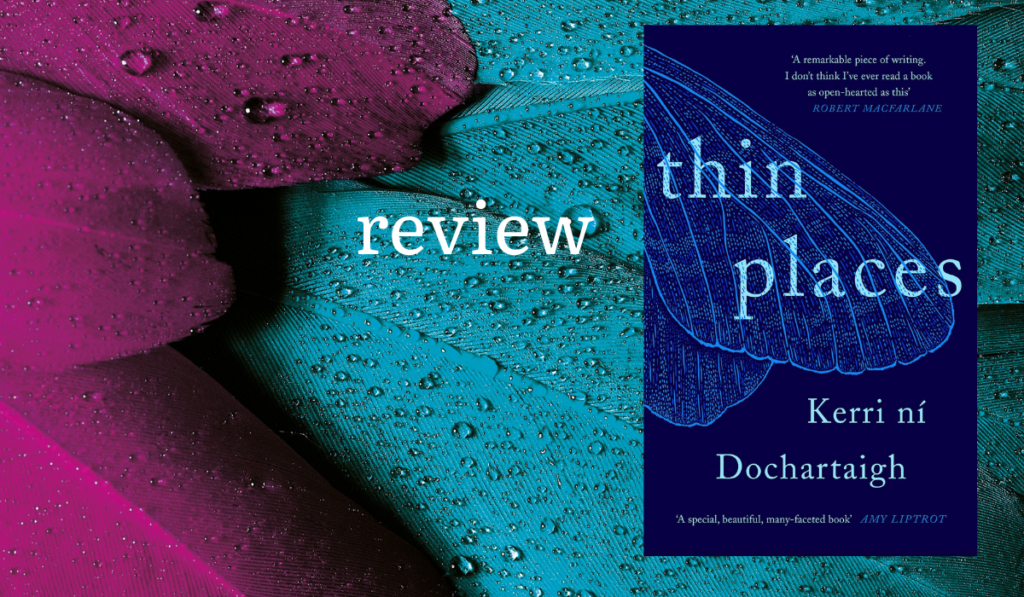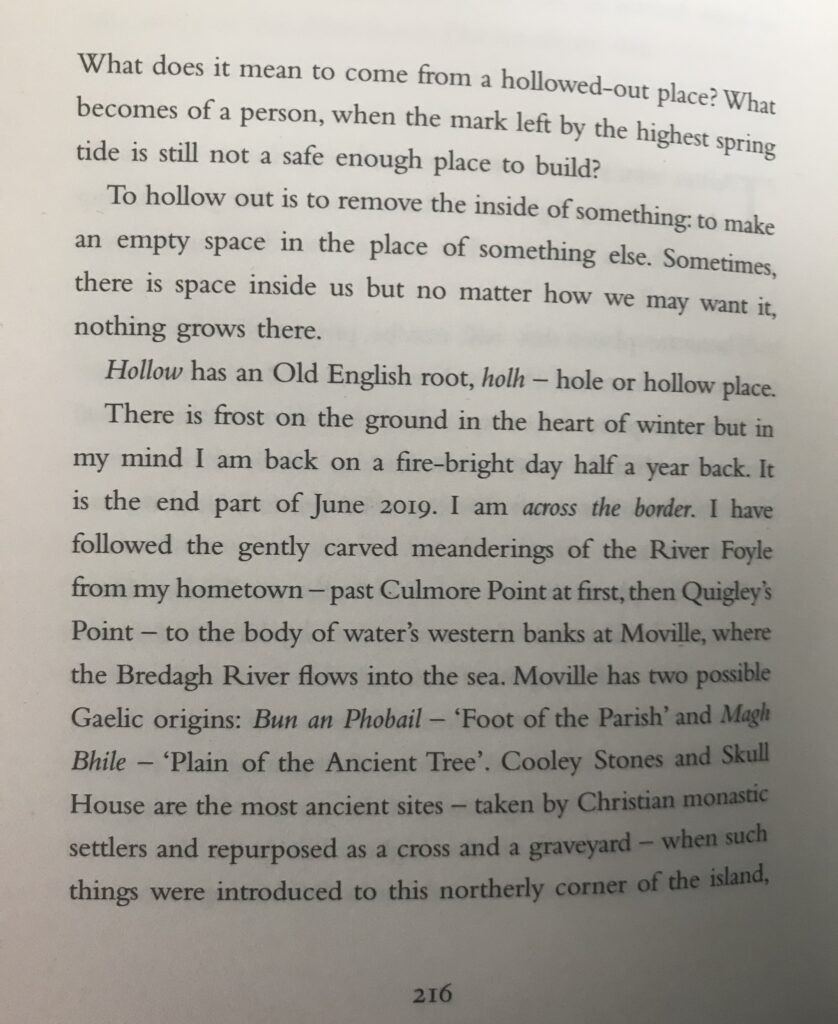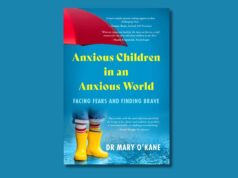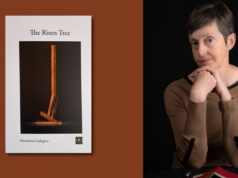
Thin Places|by Kerri ní Dochartaigh|Canongate|Hardback £14.99|ISBN 978 1 78689 963 7
by Susan McKeever
I have emerged after reading ní Dochartaigh’s debut bruised and battered. I’ve also been enriched, mesmerised and inspired never to look at a moth in the same way again.
It’s impossible to categorise this book, which opens in November 2019, a month before the Christmas Elections which will drive the final nail into the ‘remain’ coffin. Brexit is full steam ahead.
In a stream of words that tumble together as part-memoir of an unutterably traumatic childhood in Derry, ní Dochartaigh describes her entry into the world at the height of the Troubles, born to a Catholic mother and a Protestant father, who were young and barely knew each other when she was first ‘whispered of’.
That baby grew into a child who learned that she was in the impossible position of being neither one nor the other, in a city riven with such sectarianism that Catholic and Protestant never mixed; it was dangerous to wander to the wrong side of the River Foyle, which formed a natural boundary between the two. She describes a scene from the Big Freeze of 1963 when the freezing over of the Foyle galvanised people from both sides to play football matches on the ice, a wonder reminiscent of the Christmas truce football played in no man’s land in World War I.
The Foyle acquires mythical properties through the writing—it is ‘a river that has witnessed things that neither you nor I could ever begin to name’.

The first house she lived in, on a mostly Protestant housing estate, had a red dresser and a yellow teapot. From a young wean, Kerri loved nature, spending hours in the meagre back yard examining ladybirds and frogs, escaping from the constant stress and threats that pulsated around her.
When she was just eleven, that house was petrol-bombed in the dead of night by a gang of youths (word had got out that the token Protestant, her father, had left the family). An adopted stray black cat, a ‘magical creature’ clawed Kerri’s face until she woke, despite the black smoke that billowed all around them.
This is when she first sees the human-sized, silent silken crow – ‘he didn’t’ creaaak or crawww’ – that returns again and again to haunt her. Returning later to gather precious belongings, the family found them scattered out in the garden by the new inhabitants. The yellow teapot was there, probably broken, along with ‘baby hair in envelopes … our things found during walks on Donegal beaches’.
The narrative slips in and out of chronological time, as we see the author flee her hometown the first chance she got, only to be drawn back there in 2016.
Ní Dochartaigh constantly dips back into painful memories, such as the senseless murder of a teenage friend, whose ‘bloodied … utterly broken shell of a body was found in a shallow grave in ancient woods’. A battle with alcoholism is examined: she had her first drink in her late twenties, as by then her ‘bucket’ was full to overflowing with the drip – drip – drip of trauma, with the sorrow that had characterised her life.
Depths of depression lead to four attempts at suicide during her time spent in Cork, living with a partner who was ‘the coldest person I’d ever met’.
But there is the other side to this story: the concept of place and the all-powerful balm of nature, the eponymous theme of thin places, places between two worlds ‘so thin, you meet yourself in the still point’; places where you stop and think about where you are.
I know what she means – I’ve felt the same sacred chill in places like Newgrange and Pompeii. There is the healing power of swimming – more popular than ever now, as we struggle for release from pandemic burnout – as ní Dochartaigh plunges herself again and again into the freezing, wild Atlantic.
This is not an easy read; at times the agonies of the author’s existence up to her mid-thirties feel relentless—but alongside this are acute observations of birds, moths and butterflies in an intense communion with nature: Thin Places is honest, brave and wise.

Susan McKeever is an editor, writer and ghostwriter for several Irish and international publishers and authors. She works from her home in the red-brick heart of Dublin’s Portobello. @MckeeverSusan,susanmckeever.biz












